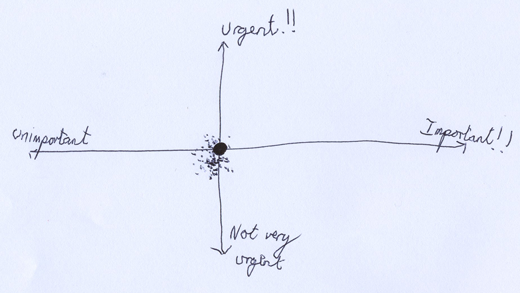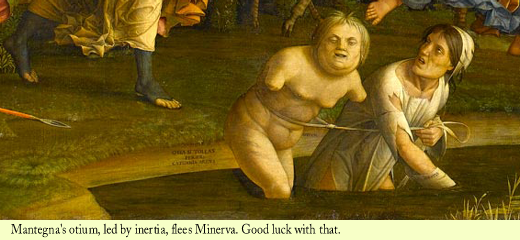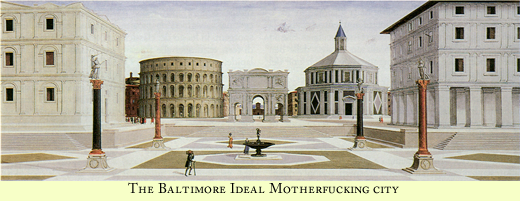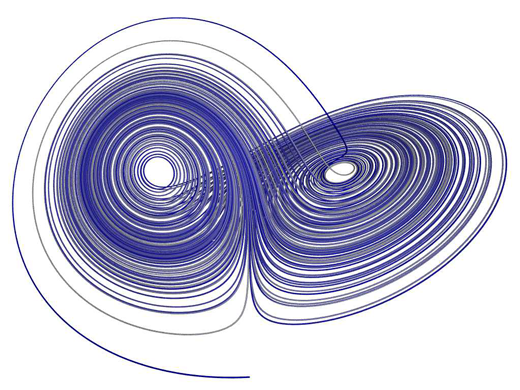Glossary of terms frequently used
in the Anatomy of Norbiton
arranged alphabetically
Accidental Norbiton
Accidental Norbiton is the Norbiton that most people experience – not a place but a series of features or services or locales that have nothing in common except their propinquity. It’s a place you pass through, make use of.
The notion of accident is derived from scholastic or at any rate Aristotelian medieval theology where it contrasts with substance. The accidents are the attributes of a given thing, the substance its irreducible thinghood. My headmaster explained it by analogy with a sparrow in a food mixer. After you have whizzed him up, the accidents remain, but the substance most certainly does not.
You might dispute his analogy (or even understanding) in a number of ways and in truth it’s an old fashioned and philosophically redundant concept, one that we would do better to forget altogether (and indeed most people have); but I am unable to do so because it was wished on me by a ruddy-faced Jesuitical tyrannopriest – my headmaster - at an early age and I can’t get it out of my head. He was standing in as supply for our regular teacher in some subject or other, and decided that this would be the day we learnt about substance and accident. Perhaps it was his stock fall back for 11-year olds. Well, learn it we did, if by learning something you understand fuddled retention of crap on the brain.
![]()
The Anatomy of Norbiton is the journal of the Academy of Norbiton and a chronicle of the Norbiton Projects. We hope that it will eventually become a collaborative online compendium of the Ideal City, a centre of civility, of civilisation, even. Failing that, and given our respective track records, perhaps it will at least serve as a point on a periplus, a marker buoy warning of dangers and reefs. Sunken wrecks.
It is already touched by (I hope, happy) discord. Clarke and possibly Hunter Sidney (although Hunter Sidney doesn’t say anything about it) believe that the Anatomy of Norbiton is my way of taking over the Ideal City. The city itself, they say (Clarke says), is necessarily more insubstantial, more diaphanous (Clarke doesn’t use the words 'diaphanous' and 'insubstantial'; he says inigfucking'xistent) than the journal of its doings, and he accuses me of design in this respect; like a Polynesian in a photograph, I have stolen his soul, their souls, and the soul of the city itself. I cannot help it, I say, the observer is not neutral, detached; Schrodinger and Heisenberg and Bohr knew that, they got it from Kant – it is the observer who collapses the wave function. Clarke, I argue, is unaccustomed to seeing himself after he has decohered. I can’t help that.
They are in any case important contributors to the Anatomy, and while it is the job of the editor to promote a homogenised style, it could certainly be argued that they have done more to shape it than I have.
![]()
The Anti-Literature is Hunter Sidney’s term for a collective literary project, or series of literary projects, under way in the deep net (see below). It is a story, or nest of stories, that multiplies, not endlessly or without control or conclusion, but nevertheless iteratively, copiously, and conditionally.
Hunter Sidney’s own particular branch or zone is an if-story, where the reader can choose to pursue one or other of a range of bifurcating storylines; some of the bifurcations are invisible, activated by links followed or not followed, which catapult or do not catapult the reader into mirror sites which appear identical but are not.
The controlling narrative of Hunter Sidney’s if-story is a detective story (he calls it Detective Love Story no.3 to distinguish it from rival streams, at least one of which is now defunct), where a sort of roving ur-detective is investigating a series of crimes linked to an underground organisation or dating agency (it is not clear to me which) in which associates are presented with a list of what I suppose are Ideal Mates – 100 or 1000 depending on where in the story space you happen to be. Each of these 100, or 1000 individuals has their own nest of associated stories (actual or potential).
The detective, who, I should say, is of variable sex and sexual orientation, is sucked into this highly-determined substratum, and from what I can make out is presented with his/her own list. The pursuit, if we can call it that, is studded with crimes and confessions and retributions and revelations. The cast of characters becomes in the context of this vast de-cultured saga like gods or heroes with multi-linear histories and competing aetiologies which similarly become, in the vastness of the work, like myth or rumour floating in from 1000 rooms away.
![]()
The deep net, or Deepnet, refers to that part of the internet which is inaccessible, or accessible only with considerable difficulty, to search engines. Much of it is dull data, or those pages assembled only dynamically by users from within restricted zones. There are also unindexed pages, long-dormant pages, and pages available via private servers.
It has spawned its own mythology: some see in its existence the hunting grounds of the government agency, the paedophile, the terrorist; the underworld of daemons or ungovernable drives. But Hades, we should know by now, is mostly just the earth on which we build our cities and in which we plant our gardens. There is no Proserpine.
Hunter Sidney feels uneasy that his anti-literature should be located in the deep net. It is a community literature, he says, a proper literature returned to the hands of a productive culture. It should not be hidden. But he is comforted that there are bore holes to the nether realm, ways in, fuming narrow cracks in the World Wide Web's surface through which man or woman, but not god or raging hero, can descend.
![]()
Empirically Real Norbiton is Norbiton understood as a place, a town in its own right, with its centre and margins and economy and interrelation of parts. It is generally only noticed by inhabitants too sick or poor or witless to leave it.
I always enjoy the concept of time management matrices, where typically you plot your duties or tasks against two axes – importance and urgency.
There is a crucial intersection here, rarely treated of in, say, time management handbooks, at 0,0, where tasks or duties are neither important nor urgent, nor negatively charged with unimportance or lack of urgency, but have instead a weightless velleity. These are tasks which sort of have to be done, and sort of don’t, which sort of should be done now, or whenever you feel like it, really.
A scattergram of my entire life against a time management matrix would therefore look like this:
Kant was precocious in his development of an epistemology management matrix, where the two axes were respectively real-ideal and empirical-transcendental. Empirically real means the place we think we inhabit, common sense real life. Empirically ideal is unicorns. Transcendentally real is the realm of things in themselves that you can never know, and transcendentally ideal is the proper occupation of philosophers.
Kant lived in and never left Konigsberg on the Baltic Coast, just as I no longer leave Norbiton. He had his walks and his habits within this narrow compass, just as I have mine. He would have understood in pure thought, as I do in sullied act, that urgency and importance, like space and time, are forms of perception.
At any rate that’s what I tell myself.
Failed Life
Clarke doesn’t like the phrase. He says if we mean failure or fuck up we should just say so. But as I am at pains to point out in the Prospectus, there is a necessary distinction between failure and the Failed Life.
Hunter Sidney is closer to the point when he says, the Failed Life is what we all live, one way or another. But he is really thinking about death, so he is closer to the point in the same tedious way a stopped clock is more accurate.
Norbiton: Ideal City
Sufficient to say here, I think, that, while our Ideal City is not an architectural phenomenon, nevertheless it has its piazzas, its markets, its libraries, its university, its cloisters, its arcades, its arena. Its citizens are known to each other, doff their caps to one another in the street, they understand their obligations, duties and freedoms as citizens, more or less; we have no forces of order, no prisons, no judges or government, no committees or council, but we have, nevertheless, our organisation.
In short, we, it, the City, exist and exists.
Otium honestum, otium liberale
We have developed in the Norbiton Projects and Academy our own form of public life, and our condition is now full-on negotium; otium was merely a transitional phase. However, we find the concept interesting and frequently return to it, so if you are interested in a gloss, here it is.
Otium, in its various guises, is internally structured leisure. By internally, I simply mean structured according to its ends, not by some external routine or stricture, although these might also be present. Leisure, in other words, with something at its centre, something exerting a gravitational pull, so that everything, however distant, moves in relation to that it, whatever it is.
The word is variously articulated by Classical, early Christian, and scholastic thinkers (A thinker, by definition almost, is someone who is immersed in a certain kind of otium – not someone, for example, who squeezes out a plan in a tight spot).
In the Classical world, the word was contrasted with negotia publica, from which we have negotiate, and the Italians their word for shop, negozio. Negotia publica is engagement with the world, immersion in public affairs. Otium is a retreat from that engagement. But the clear implication is that whoever retreats has either at some stage been involved, and so earned their sabbatical or retirement or retreat; or has been prevented from such involvement by external circumstance or personal disability (sickness, for example, the overturning wheel of Fortune). It is fair to say that the kind of man (always a man) who retires from senatorial life is highly likely to structure his leisure in some way – write his memoirs, make philosophical jottings, breed prize orchids. Seneca, trying to make sense of his own exile from public life in Corsica, differentiates between the Stoic and Epicurean positions, whereby an Epicurean will choose otium over negotia publica where possible, and a Stoic will do the opposite; but both will recognise the dignity and necessity of both approaches.
For Augustine (354-430 CE) in his retreat at Cassiciacum near Milan, where he prepared himself for conversion to Christianity and to which he subsequently withdrew in the summers with a selection of disciples and colleagues for purposes of theological and philosophical debate, the concept of otium becomes sullied with a sort of proto-monasticism; and being, by now, a party Christian, he struggles with the moral implications of monastic retreat over the pentecostal impulse to get out in the market and convert (vita otiosa or vita negotiosa?). But otium still provides the context for philosophical and theological contemplation. As with Cicero, the justification for otium is that it benefits the res publica or the City of God; the best kind of otium is really a covert negotiosum. He also mentions that Adam in Paradise was otiosum, and that the saints in heaven will busy themselves with a sort of otiosum negotiosum of eternally praising God. And he resolves the paradox of the otium of the monastic retreat standing against the need for pastoral care in the community to his satisfaction by stating that “it is the love of truth which seeks a holy leisure (otium sacrum), while it is under the impetus of love that we should undertake righteous business (negotium justum)”
otium and negotium - false opposition
Having said all of that, we should refine our position a little. This is, strictly, a false or perhaps misunderstood distinction. Brian Vickers is keen to document (at somewhat tedious length) how for the classical and medieval and renaissance worlds otium per se was considered vicious. It stood not in contradistinction to negotium, but to officium or occupationes. It was the antithesis of all productive labour. Thus when Mantegna depicts Minerva chasing assorted vices from the garden of virtue, otium is portrayed as a stunted, armless creature and not, for example, a gentleman farmer with a hip-flask and a philosophical demeanour.
The reason Augustine goes to such lengths to justify and define and explain himself is precisely because monastic otium developed in a classical world where retreat from the world was a reputed evil. Thus the suggestion that otium is of itself a good to be cherished – that it is the positive to the negative negotium - is incorrect.
However, Vickers also makes the point that otium could be distinguished from accidia, say, or desidia, by careful qualification; thus it is that stoics and Augustine will refer to it variously as otium honestum, or otium liberale, in order to separate if from the various classes of dissolute idleness. We follow that lead.
Perhaps we would do better to abandon the classical terminology altogether and go instead with something like Hannah Arendt’s Labour, Work and Action. But that sounds a little tiring, and we do not need to justify ourselves. If you think we are idle reprobates, then, even if you are in fact correct, you are still in all probability the enemy.
![]()
periplus
periplum: not as land looks on a map
but as sea bord seen by men sailing
Ezra Pound, Canto LIX
A periplus is an itinerary used by early Mediterranean mariners to map coastal routes by listing the ports to be visited, headlands or islands to be passed, alignments in the coastline, intersecting currents, prevailing winds, and so on.
The word refers variously to the navigational form and the actual manuscripts. The manuscripts are at once scant of detail and heavily annotated, sketchy mental aides handed down from generation to generation and then collated and conflated. The pulpy knowledge in your head would always overlie the parchment in your hand.
Pound, who for some reason uses the accusative form, notes the key point here – a periplus is a seaman’s eye view of the coast, not a god’s eye view.
(elsewhere I suggest that a periplus is a the sort of map made by Phoenician sailors, not by Roman engineers; but this is not strictly true as the Phoenicians were not coast huggers - they struck out across the broad body of the Mediterranean and navigated by the stars.)
![]()
the Projects
We used to talk of the Norbiton Project, but then found that everyone was more or less off on his own project so came to talk of the Projects, in the same way that J.G.A Pocock talks of the Enlightenments, and in the same way that you could, or should talk about the Renaissances. It pleases us that it reflects our scattered being.
'The Projects' is also what they call social housing in the United States, and so we additionally like the fact that every time we say it we sound in our stupid heads like urban outlaws, modern-day bravi.
Is it worth pointing out as a peculiar confluence that the city of Baltimore is home both to The Wire and one of the three città ideale? Probably not.
quattrocento
There are many Renaissances. The quattrocento Renaissance of Florence is merely the original and best. They can be enumerated as follows:
- Quattrocento Florentine Renaissance. Begins in 1419 with Brunelleschi’s ospedale degli innocenti, quickly followed by his demonstration of linear perspective and Masaccio’s contribution to the Brancacci chapel; and ends with the invasion of the French and the rise of Savonarola in 1494-5. Can be usefully divided into two strong currents, the humanist and mercantile solidity dominant in the first half century or so; and the hermeticist mystical revival associated with Marsilio Ficino of the second. First half good, second half not so good, although Leonardo somehow muddled along.
- High Renaissance. High as in gamey. Putrescent, maggoty. Focussed on Rome, Michelangelo and Raphael, Tyrant Popes. Dates roughly between 1500 and 1527; 1500 is the approximate year of Bramante’s tempietto, and 1527 the year of the sack of Rome. We are no longer witnessing the rebirth of a classical sensibility, but the Kraken-like re-emergence of Roman Imperialism. Look at Michelangelo’s muscle-bound, protein-pumped nudes, the misery of Saint Peter’s and its shrieking skull-dome, and think Nero, Caligula, Heliogabalus.
- The Venetian Renaissance, rooted in Bellini and whatever Antonello da Messina taught him of oils, but reaching its fullest expression in Giorgione and Titian, Carpaccio and Sebastiano del Piombo (before he was seduced by Rome and Michelangelo). Berenson regards this as the culmination of painting, full stop, and certainly the culmination of Renaissance painting. But in Titian and Giorgione we have entered a shapeless world of sfumatura, it is sickly, unanchored, destabilising, febrile, the fruit of a whispered tyranny. (Carpaccio, on the other hand, briefly had it nailed. More on that elsewhere.)
- I forgot Mantegna.
- The Northern Renaissance of Dürer.
- The French Renaissance of Rabelais and Montaigne and the Pléiade, of François I and the Field of the Cloth of Gold, and Leonardo at Amboise and Andrea del Sarto making off with the King’s money.
- The Renaissance of Elizabethan and Jacobean England – the Renaissance of the Word, if you like, of Shakespeare and Marlowe and Jonson and Webster, Chapman and Florio and Golding, of Sidney and Raleigh and Donne and Herbert. We like this Renaissance. But it is a long way from where we are now. In the quattrocento.
- Monteverdi at Mantua.
- I'm fretting now that I may have left one out. The Carolingian Renaissance? Was that a Renaissance?
I will only add that when I was perhaps four or five my brother and I, wakeful and alert one bedtime, spent an increasingly excitable hour or so making a list of all the words we could think of that end in –ing. There were a great many. I recall waking up the next morning and my brother, our discovery still fresh and marvellous, adding a few words he had thought of in the night, after I had succumbed to sleep. Kicking, shooting, cycling, racing, sneezing. And on and on.
While we probably felt like Crick and Watson, we were too hare-brained to spot any sort of explanatory pattern. Significantly, I do not recall a commensurate kick of excitement when (I suppose) I finally understood that there are such things as verbs, and verbs have their morphology.
![]()
sensorium
Newton regarded the universe – specifically absolute space - as the sensorium of God (sensorium Dei) by which I take it he intended the organ of God’s mind (as the brain was to some seventeenth century thinkers the organ of our minds; perhaps we should note in passing that Leibniz, referring to this particular expression, remarked that Newton “had not much success with metaphysics').
In the same way (I think) The Ideal City can be regarded as the sensorium of its citizens.
Civ Clarke notes that put this way, I make it sound rather grand.
More straightforwardly then, sensorium in the Ideal City refers in the first 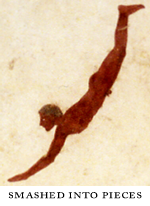 place to the totality of sensory pleasantness of the physical world into which an individual may for a time detach himself from the anchor of identity (Kelley’s paradigm for this was being 'smashed into pieces’ in the Californian surf); and in the second (and more important) place, to the way those sensoria are mildly governed by an animating subject.
place to the totality of sensory pleasantness of the physical world into which an individual may for a time detach himself from the anchor of identity (Kelley’s paradigm for this was being 'smashed into pieces’ in the Californian surf); and in the second (and more important) place, to the way those sensoria are mildly governed by an animating subject.
Inhabiting the sensorium, in short, is a way of reorganising your mortal soul.
![]()
sphere of possession
James Agee, in his Knoxville, Summer of 1915, uses the term 'sphere of possession' to denote, I take it, the way that we extend psycho-perceptually through space; we do not inhabit a spatial continuum that is homogenous. There is, obviously enough, a back and a front to our experienced world, a left and a right, an up and a down, a near and a far. We push into it, stake out bits of it – these objects, this room, belong to me.
 Our discontinuous and variable density sphere of possession makes the world intelligible to us. This room in this house where I am writing is not a mere analogue to that room in that house over the road in which I have never set foot, but which I can see quite clearly to be fundamentally no different from that in which I am now; moreover, even if I could set foot in it would be differently known. The same room will be differently configured for each inhabitant, depending on how it functions in their spatial syntax. By extension, individuals interact gravitationally with the objects native to their own spatial grid – objects pertain to you or not to you, are weakly or strongly bound to your sphere of possession.
Our discontinuous and variable density sphere of possession makes the world intelligible to us. This room in this house where I am writing is not a mere analogue to that room in that house over the road in which I have never set foot, but which I can see quite clearly to be fundamentally no different from that in which I am now; moreover, even if I could set foot in it would be differently known. The same room will be differently configured for each inhabitant, depending on how it functions in their spatial syntax. By extension, individuals interact gravitationally with the objects native to their own spatial grid – objects pertain to you or not to you, are weakly or strongly bound to your sphere of possession.
The different inhabited spaces of our world are connected by tunnels of space equally known to us – the walk to work, to the library, to the allotments. Elsewhere I call these tunnels vectors, but that makes them seem transient, energetic, electrical; they are more like rivers, morphing imperceptibly across the landscape, occasionally bursting a bank and settling back into a new course. These tunnels of space – different for each of us – are predicated on agreement and contract, as though we move through different tribal spaces by negotiated safe-passage, clutching totemic objects (clothing, bag, laptop, phone, can of special brew) which mark us out in their hieroglyphic interation as hostile, neutral, invisible, cyclopic.
In the end, the topology of any individual’s sphere of possession determines and is determined by his or her relations with others. When an individual enters into a contract, it affects the shape and extent of the sphere of possession of both, and places each at some coordinate location in the other’s lumpy space.
![]()
strange attractors
Strange attractors are a sort of unpredictable gravity well in probability space, and their existance explains, in general terms, why dynamical systems jump from one set of behaviors to another. Here is a picture:
This is a lorenz attractor. Each whorl represents a provisional stability, but the system will periodically jump from one to the other. It is the periodicity of these jumps that is unpredictable.
I do not know enough about chaos theory to understand if we use the term metaphorically. Chaos theory certainly stretches to the commonplace behaviours of life, so perhaps not. In any case, we should be clear: we distrust the attractors in life - they could be habits or relationships or whole modes of being - and try on the whole to navigate between them.
Or, to think of it another way, by thinking carefully about and acting assiduously upon the gravitational masses of your life, we believe that it may be possible and desirable to set up attractors of choice.
total emblem space
I borrow and adapt the term from Richard Dawkins' Blind Watchmaker, where he talks about total-creature-space, if I recall (and I haven't read it for twenty years, so I admit the possibility that I do not).
Total-anything-space is the totality of all possible forms of that thing, whether they exist or not. Possible paths are not taken by evolution, other paths are dead-ends.
Thus Total-emblem-space is the space inhabited not only by all actual emblems but by all actual, all potential, and all logically-conceivable-but-in-fact-non-viable emblems.
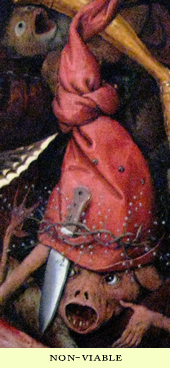 To put this another way, not all conceivable emblems are in fact viable. You can conceive of a creature with a bagpipe nose, but this is not viable. A creature born with a bagpipe nose will most probably not survive (and we really should subdivide viability between those organisms (whether creatures or emblems) which could be mutated for, and those which couldn’t. Fruit flies can be genetically modified to have legs growing from their heads, for instance; they cannot be genetically modified to have opposable thumbs, I suppose).
To put this another way, not all conceivable emblems are in fact viable. You can conceive of a creature with a bagpipe nose, but this is not viable. A creature born with a bagpipe nose will most probably not survive (and we really should subdivide viability between those organisms (whether creatures or emblems) which could be mutated for, and those which couldn’t. Fruit flies can be genetically modified to have legs growing from their heads, for instance; they cannot be genetically modified to have opposable thumbs, I suppose).
Emblems, like creatures, are generated from a coded inheritance, or according to a bauplan: their various parts - motto, picture, epigram - are detachable, independently mutable; they can break up and variously reform according to the logical dictates of their time. Nothing comes from nothing, either in the world of creatures or in the world of emblems – iconography has a history, exerts a gravitational or chemical sway.
So we could plot actual emblems on to a map which showed also the location of all potential, all potential but non-viable, and all non-potential (and either viable or non-viable) emblems. Such a map, needless to say, would be not only a map of space but a map of space-time, because there is a hereditary or generational connection between emblems.
My contention, for those of you still with me, is that such a map would reveal regions. And regions in any total-space argue for organisation, which is a counter-entropic signature, and explains why stuff is similar, why there are styles in art, convergences in ideas. Why emblem space-time, like real space-time, is lumpy rather than smooth.
![]()

